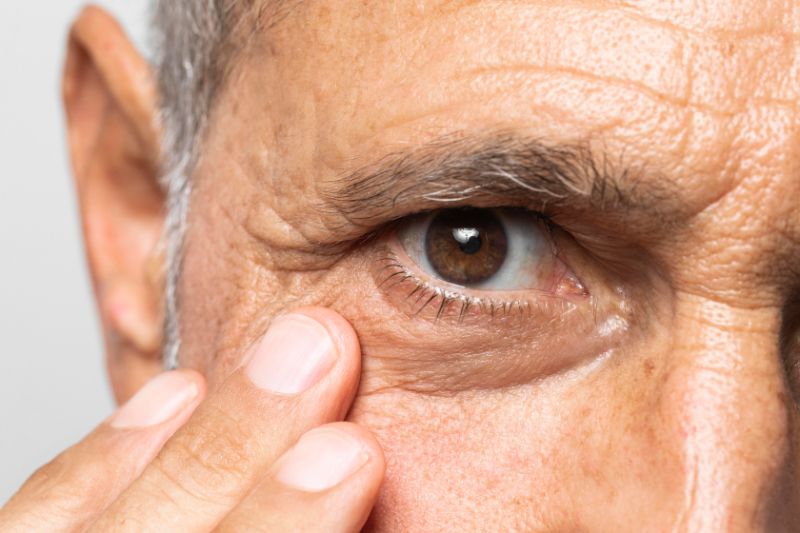
Diabetic retinopathy is a condition caused when long-term diabetes affects the functioning of the eyes. It occurs when high blood sugar levels damage the blood vessels in the retina.
The retina is the light-sensitive tissue at the back of the eye, which sends visual signals to the brain. When this condition occurs, a fluid discharge develops in the retina or beneath its tissue, leading to the retina expanding and impacting vision.
In its early stages, diabetic retinopathy may not cause any symptoms, but it can lead to blurred or distorted vision, floaters, or even vision loss as it progresses.
People with diabetes are recommended to have regular eye exams to detect early signs of diabetic retinopathy. Treatment may include medication injections and laser or vitrectomy surgery.
Diabetic Retinopathy can develop gradually without any noticeable symptoms during its early stages. As it progresses, some signs may start to appear. These include the following:
Diabetic retinopathy is caused by high blood sugar levels in diabetic patients, which damage the small blood vessels in the retina over time. Some specific causes of diabetic retinopathy include:
Our specialists might ask about your medical or family history of eye diseases during your eye exam. Knowing about your lifestyle and conditions can help determine if you have diabetic retinopathy.
Your ophthalmologist may perform multiple painless and quick tests, including:
If left untreated, diabetic retinopathy could develop into the following complications:
At Eyes NY, we offer a variety of retinal services to suit every patient’s needs. To treat diabetic retinopathy, your doctor may opt for one or more of the following treatment options:
During a vitreoretinal surgery, your eye doctor will remove the vitreous and replace it with another solution. Then, any other issues, like holes in your retina, will be repaired by placing air or other gases into the eye and keeping the retina in place.
This treatment can decrease the chance of developing retinal detachment. Vitreoretinal surgery is a minimally invasive procedure; most patients usually have fast and successful results. Patients should plan on time for recovery after the surgery, since it takes from 2 to 4 weeks to return to regular activities.
This surgical treatment helps to stop bleeding from blood vessels and can help patients with diabetic retinopathy.
In this case, medication is injected directly into the eye to stop the growth of abnormal blood vessels. This treatment is ideal for people with macular degeneration, diabetic retinopathy, or broken blood vessels.
During surgery, your doctor will remove the fluid that fills the inside of your eye and will replace it with another solution.
It is important for diabetic patients to constantly manage their condition to prevent the development of retinal diseases like diabetic retinopathy. Doctors often recommend the following:
EyesNY offers treatment to help patients dealing with diabetic retinopathy and other retinal problems. Our specialized team of ophthalmologists is ready to assess your needs and give you the high-quality vision care you deserve.
We work with cutting-edge technology to identify the root cause of your condition and create personalized treatment plans. Our caring staff is ready to welcome you and meet your ocular health and vision needs. We offer comprehensive eye care services, including treatment for diabetic retinopathy and other retinal problems.
If you’d like a consultation or more information, contact us, request an appointment online, or visit our clinics. We have multiple locations around New York, including Malta, Clifton Park, Troy, Saratoga Springs, and Queensbury.
Malta
658 Malta Ave., Ste 101
Malta, NY 12020
Phone: (518) 580-0553
Saratoga Springs
414 Maple Ave Ste 200
Saratoga Springs, NY 12866
Phone: (518) 580-0553
Clifton Park
1712 U.S. 9
Clifton Park, NY 12065
Phone: (518) 580-0553
Queensbury
535 Bay Road
Queensbury, NY 12804
Phone: (518) 580-0553
Troy
2200 Burdett Street Ste 206
Troy, NY 12180
Phone: (518) 580-0553
